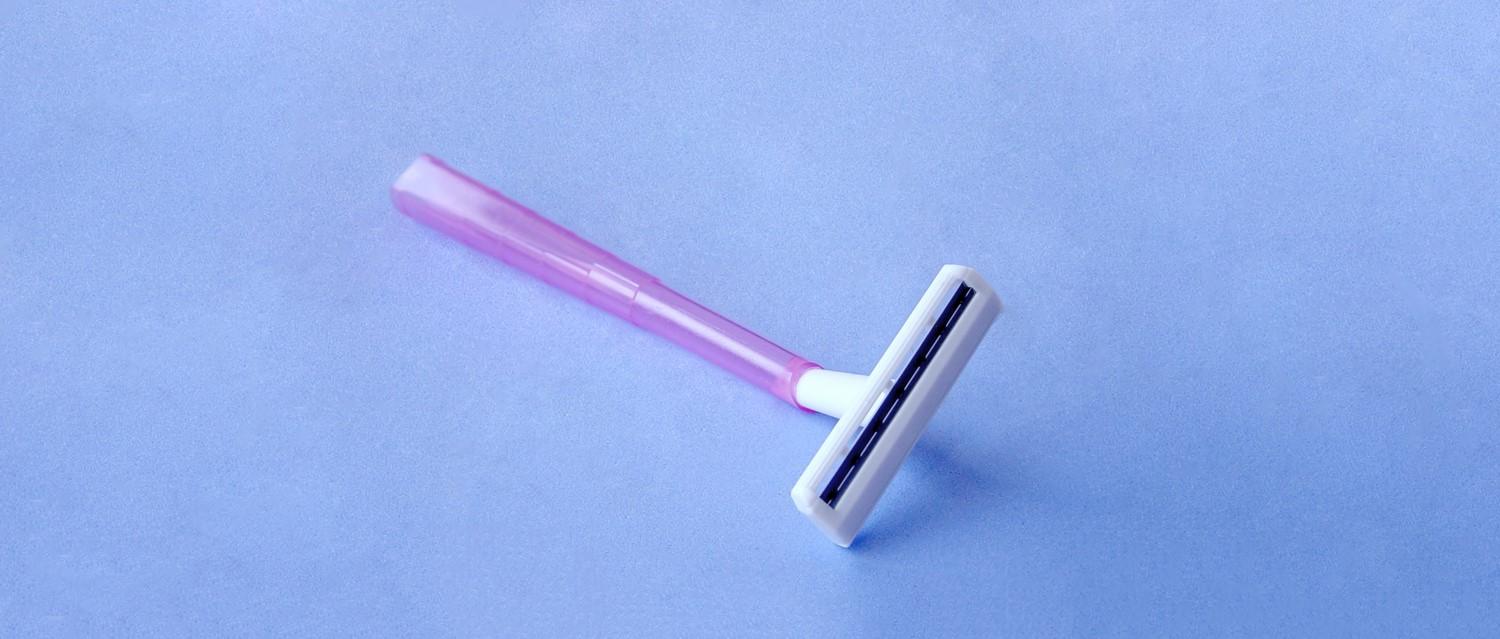
Can vitamins really prevent hair loss?
Peer reviewed by Dr Krishna Vakharia, MRCGPLast updated by Amberley DavisLast updated 12 Oct 2023
Meets Patient’s editorial guidelines
- DownloadDownload
- Share
- Language
- Discussion
In the health and beauty industry, vitamin supplements to prevent hair loss and promote hair growth are popular. Can vitamins be a good treatment option? Which vitamins are backed by the most evidence?
In this article:
What causes hair loss?
For most of us, hair does much more than protect us from the sun and regulate our temperature. As hair plays a significant part in our physical appearance, it can help to give us confidence and make us feel good about ourselves. As a result, hair loss may be a big source of stress and despair.
These changes can be temporary or permanent. It all depends on the type of hair loss you're experiencing. There are many types of hair loss but the two most common forms of hair loss are:
1.
Androgenetic
alopecia (permanent hair loss)
Male pattern baldness is the most common form of permanent hair loss, affecting around one third of men aged 30 years, half of men aged 50 years, and nearly all men in their 60s. With age, male hormone changes affect the size and ability of hair follicles - tiny pouches under your scalp - to grow hairs.
Women can also experience androgenetic alopecia (AGA), although this may result in a general thinning of hair rather than a pattern. Hormonal changes are also to blame, most often as a result of the menopause.
2. Alopecia areata (temporary hair loss)
This type of hair loss is an autoimmune disease - a fault in your immune system means that it attacks your own hair follicles causing bald patches. Alopecia areata (AA) can lead to bald patches or total baldness in some cases. The good news is it is usually temporary, although in some cases the hair loss is permanent.
Telegen effluvium (TE) is a form of temporary alopecia that can be caused by stress. This interrupts the growth of some hairs which causes more than usual to fall out.
The health of your hair follicles is crucial in both forms of hair loss. This is where micronutrients such as vitamins and minerals come into the picture. Dermatologist Julie Van Onselen explains:
"Vitamins and minerals have a role in normal hair follicle development. Deficiency of these nutrients may be associated with alopecia, which may be permanent or temporary hair loss."
Which vitamin deficiency causes hair loss?
Back to contentsYour scalp contains around 100,000 hair follicles1. Of these, 90% require vitamins, minerals, and other essential micronutrients in order to produce healthy hair.
This is why experts believe that vitamin deficiency may lead to hair loss. According to Van Onselen, there is strong evidence linking two specific vitamin deficiencies with hair loss:
"Current evidence indicates that when a person is vitamin D-deficient, supplementing vitamin D may help with AGA hair loss.
"Iron deficiency may also be a cause of this type of hair loss in women. Vitamin C is important for hair loss associated with iron deficiency, so supplementation of this vitamin may be helpful."
Continue reading below
Can supplementing vitamins save your hair?
Back to contentsBefore you splash the cash on the huge range of hair growth supplements now widely available, Van Onselen cautions that there is "limited medical evidence" on the role of vitamins for preventing hair loss that's not directly caused by a vitamin deficiency.
What's more, while you can buy many different vitamins and supplements for hair loss, it's important to know that there is evidence that some vitamins work better for hair loss than others.
According to Van Onselen, the strongest evidence is for vitamins D and E, and for the mineral iron. "There is currently limited evidence for the supplementation of other vitamins to prevent hair loss."
Vitamin D for hair loss
Role in hair: vitamin D is important for keratinocytes - skin cells that produce keratin, a protein found in hair, skin, and nails. When you don't have enough vitamin D, keratinocytes in hair follicles can't regulate hair growth properly. This is why low vitamin D levels have been linked with temporary hair loss2.
Supplementing for hair loss: experts recommend taking vitamin D supplements alongside a healthy, balanced diet for AGA, AA, and TE hair loss1. This may improve your symptoms and slow hair loss down, although studies of hair regrowth remain limited.
Vitamin C and iron for hair loss
Role in hair: your body needs vitamin C in order to absorb iron, a mineral that plays a key role in the red blood cells that transport oxygen around your body. When you don't have enough iron, less oxygen can be used for the growth and repair of the cells that stimulate hair growth.
Supplementing for hair loss: if you are iron-deficient, Van Onselen suggests that both vitamin C and iron supplements may be helpful in reversing temporary hair loss.
Vitamin A for hair loss
Role in hair: this vitamin is needed for healthy cell growth, including your hair cells. It also supports the production of sebum, a substance which keeps hair hydrated and prevents hair breakage.
Supplementing for hair loss: most people should be able to get enough vitamin A from their diet without supplementation. This is important to remember, as Van Onselen cautions that taking too much vitamin A through supplements can in fact result in hair loss. Therefore, you should be cautious of how much vitamin A supplement products contain. Find recommended daily limits here.
Vitamin B7 (biotin) for hair loss
Role in hair: biotin helps to activate the proteins that contribute to healthy hair growth. This vitamin can also stimulate the production of keratin.
Supplementing for hair loss: biotin supplements for hair loss are only proven to benefit those with biotin deficiency, and a normal diet is thought to provide you with enough biotin. There are no high-quality studies to show that supplementation can benefit people with healthy biotin levels, or that it can effectively treat ADA, AA, or TE hair loss3.
Vitamin B12 for hair loss
Role in hair: vitamin B12 helps in the production of red blood cells, which transport all-important oxygen to the hair follicles.
Supplementing for hair loss: there is limited evidence that taking this vitamin can prevent or restore hair loss and more studies are needed. Scientists have tried to determine whether there is a relationship between vitamin B12 deficiency and temporary hair loss, but many studies have found no significant correlation1.
Vitamin E for hair loss
Role in hair: this vitamin supports your scalp health, preserving your skin barrier (lipid layer), keeping a healthy balance of oxidants and antioxidants, and helping to protect against free-radical damage (unstable atoms that can damage skin and hair cells). A healthy scalp means your hair has a strong base to grow from.
Supplementing for hair loss: evidence for vitamin E's role in hair loss is inconsistent and there is currently no evidence that vitamin E supplements can treat permanent or temporary hair loss.
Other remedies for hair loss
Back to contentsIf you have noticed your hair receding from your temples, becoming thinner, or bald patterns forming, it may be tempting to spend money on vitamins claiming to treat hair loss.
Before you do, you should first look at your diet - your main and most important source of vitamins. It is important to ask yourself whether you're eating enough of the right things. Vitamin supplements should only ever be taken in addition to - not in replacement of - a nutrient-rich diet.
There is a trend for using rosemary oil to boost your hair, but there is little evidence this actually works.
Remember, your hair loss may not be linked to a vitamin deficiency at all. In many cases, it's a natural part of ageing. In others, there are other culprits you need to address, such as stress or medication that's triggering an adverse reaction.
Any medicinal treatments you may wish to try will depend on the type of hair loss you're experiencing. If you're unsure of what to try, a doctor will be able to advise.
Common treatments include:
Steroid creams, gels, and injections.
Topical immunotherapy - where a substance that triggers an allergic reaction, such as diphencyprone, is put on the skin in increasing strengths. The resultant skin reaction appears to interrupt the process of AA, allowing hair to regrow.
Hair regrowth medicines - finasteride and minoxidil.
Scalp surgery.
Continue reading below
To treat or not to treat
Back to contentsDepending on the type of hair loss or if you have any other symptoms, you may want to find out the cause of your hair loss. In itself, hair loss alone is not a health concern, and the choice to try and treat it is entirely your own.
Many people choose not to treat male pattern baldness or female permanent hair loss. While it can be upsetting, this type of hair loss is natural and need not affect your well-being.
If it's a temporary hair loss, the hair can take several months to regrow. You may wish to wait and see if this recovers by itself before considering vitamin supplements or any other treatment method.
Further reading
Back to contentsPatient picks for Hair and scalp

Skin, nail and hair health
What to do about excess body hair
Plucking. Waxing. Shaving. For many women, getting rid of unwanted hair can be a burden. But this is all the more difficult for women suffering with excess body or facial hair, otherwise known as hirsutism.
by Dr Anna Cantlay, MRCGP

Skin, nail and hair health
Does rosemary oil actually help hair grow?
We’re always on the lookout for the latest miracle health product - especially if it’s inexpensive and easily found on the high street. And TikTok is full of claims that rosemary oil is a remedy for rapid hair growth. But is there any evidence it works?
by Victoria Raw
Article history
The information on this page is peer reviewed by qualified clinicians.
12 Oct 2023 | Latest version
26 Jun 2022 | Originally published
Authored by:
Amberley Davis

Ask, share, connect.
Browse discussions, ask questions, and share experiences across hundreds of health topics.

Feeling unwell?
Assess your symptoms online for free
Sign up to the Patient newsletter
Your weekly dose of clear, trustworthy health advice - written to help you feel informed, confident and in control.
By subscribing you accept our Privacy Policy. You can unsubscribe at any time. We never sell your data.